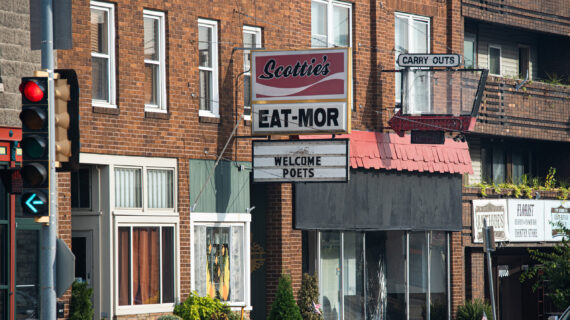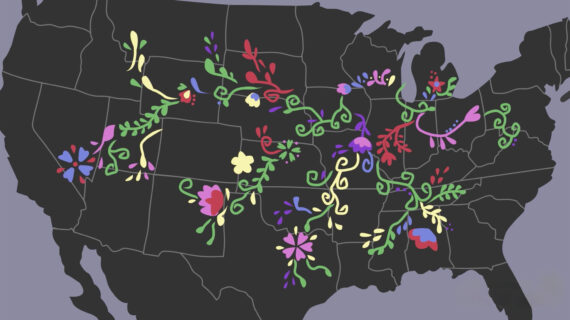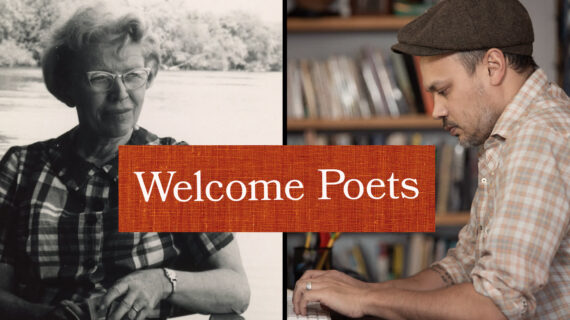Frederica Freyberg:
No one has to tell us that beer has a special cultural and social hold in Wisconsin. Tonight this preview from Wisconsin Public Radio as they embark Monday on two weeks of reporting about alcohol in Wisconsin. The series is titled “High Tolerance” and will be paired with talk programming. We sat down with WPR Capitol Bureau Chief Shawn Johnson, who unraveled the arcane world of Wisconsin rules and regulations around alcohol manufacturing, distribution and sales. Shawn, thanks for doing this.
Shawn Johnson:
Thanks for having me.
Frederica Freyberg:
So fun assignment?
Shawn Johnson:
Oh, yeah. It’s fun. I mean, it is really interesting. However, I would say a lot of the interviews that I did on this took between an hour and three hours to kind of sift through all the nuance. So we should have a good time getting through this in four, five minutes here.
Frederica Freyberg:
You’ve told me that every state has its own laws and regulations around alcohol and they’re pretty complex. But what is the origin of these laws?
Shawn Johnson:
You can trace pretty much all of them back in some form or another to 1933, which is the year that the 21st Amendment to the U.S. Constitution was passed and prohibition ended. Alcohol was legal again in America. The 21st Amendment left it to states to come up with how to regulate alcohol. And kind of the guiding principle of those early regulations were that they didn’t want to go back to what it was like before prohibition, when you had this deregulated alcohol industry that led to saloons and violence and bribery. They didn’t want to return to that so they wanted a heavily-regulated alcohol industry.
Frederica Freyberg:
And so in Wisconsin it’s three tiers. There’s the manufacturer, the brewer, the distributor like the beer trucks and then the retailer like taverns and stores.
Shawn Johnson:
Yeah. In theory, they’re all doing their own things. A brewer is brewing. A distributor is distributing. A retailer is selling. In practice, there are so many exceptions to the law that you get a lot of cross-over. Brewers selling food. Brewers distributing in some cases. In some cases, not. And then there’s a lot of protections written in the law that prohibit them from doing things that they were able to do even just 20 years ago.
Frederica Freyberg:
You kind of looked closely at distributors because there are a lot of these kind of carve-outs and exceptions and laws specific to distributors. Describe that.
Shawn Johnson:
Yeah. I mean, if you look at the changes that Wisconsin has passed in the past couple decades to alcohol laws, distributors have been behind a lot of them. So distributors now have exclusive territories. What that basically means is that for every beer brand in every region, which is a county or a group of counties, there’s one distributor for that beer brand. So you know that particular type of beer rolled off one kind of truck and no other. There’s also something called Wisconsin’s Brand Compensation Law. And that makes it harder for a brewer to leave a distributor without paying them a lot of money. Basically a brewer who decides they want to go to a different distributor would either have to get that distributor to pay their old distributor what’s called fair market value or the brewer would have to pay it themselves, even though they make that beer, they have to buy their brand back.
Frederica Freyberg:
Well, distributors must pretty much like these rules.
Shawn Johnson:
I mean they say there’s a reason for all of them. You talk about brand compensation, for example. They say there’s a value to what they do. So if you see a beer truck rolling down the street with a beer logo painted on the side, chances are pretty good that’s not actually owned by the brewer. It’s owned by the distributor. That logo is a billboard that they pay for to advertise the beer. So brand compensation, they say, is a way to put a value on that.
Frederica Freyberg:
So with craft beers kind of exploding in Wisconsin and elsewhere, where do the carve-outs if you will, for distributors and the protections for distributors leave those smaller manufacturers?
Shawn Johnson:
I mean, I think the entire system of alcohol regulations probably leaves smaller manufacturers in need of a lawyer in some cases. They have to decide what it is they’re going to do and how they’re going to do it legally. There’s a lot of debate over what the law says at any given time. So that’s step one. I think step two is just figuring out how to carve out a niche in that market. There’s a lot of craft brews now compared to just ten years ago. The market has kind exploded. So finding a place for even an excellent beer, you know, in a market that’s full of beer is tricky now for craft brewers.
Frederica Freyberg:
We always think of the Tavern League as being kind of the big Capitol lobby around alcohol in Wisconsin. But the distributors, you say, are actually kind of bigger money players.
Shawn Johnson:
Yeah. I mean the Tavern League is a powerhouse at the Capitol because of grassroots lobbying effort. They do give money to political candidates for sure. but the Tavern League has 5,000 members. That’s about half of all the liquor licenses in Wisconsin. Distributors spend a lot more on political donations. Wisconsin Democracy Campaign tracked donations going back 20 years. Found that $3.3 million had come from distributors. And they give to members of both parties. The top recipients of donations from distributors were Republican Governor Scott Walker and Democratic Governor Jim Doyle.
Frederica Freyberg:
Also in this series, two-week series, you’ll be touching on all kinds of things, not just laws and rules.
Shawn Johnson:
Yeah. I mean it’s a very broad look at alcohol in Wisconsin. And so some of the stories we’ll look at, why is it we like it? Why it’s so popular in Wisconsin? What are some iconic places where it’s consumed? But it will also look at the social costs of alcohol. Drinking and driving in Wisconsin and why there haven’t been tougher drinking and driving laws passed.
Frederica Freyberg:
Shawn, thanks very much.
Shawn Johnson:
Thanks for having me.
Search Episodes
Related Stories from PBS Wisconsin's Blog

Donate to sign up. Activate and sign in to Passport. It's that easy to help PBS Wisconsin serve your community through media that educates, inspires, and entertains.
Make your membership gift today
Only for new users: Activate Passport using your code or email address
Already a member?
Look up my account
Need some help? Go to FAQ or visit PBS Passport Help
Need help accessing PBS Wisconsin anywhere?

Online Access | Platform & Device Access | Cable or Satellite Access | Over-The-Air Access
Visit Access Guide
Need help accessing PBS Wisconsin anywhere?

Visit Our
Live TV Access Guide
Online AccessPlatform & Device Access
Cable or Satellite Access
Over-The-Air Access
Visit Access Guide
 Passport
Passport

















Follow Us